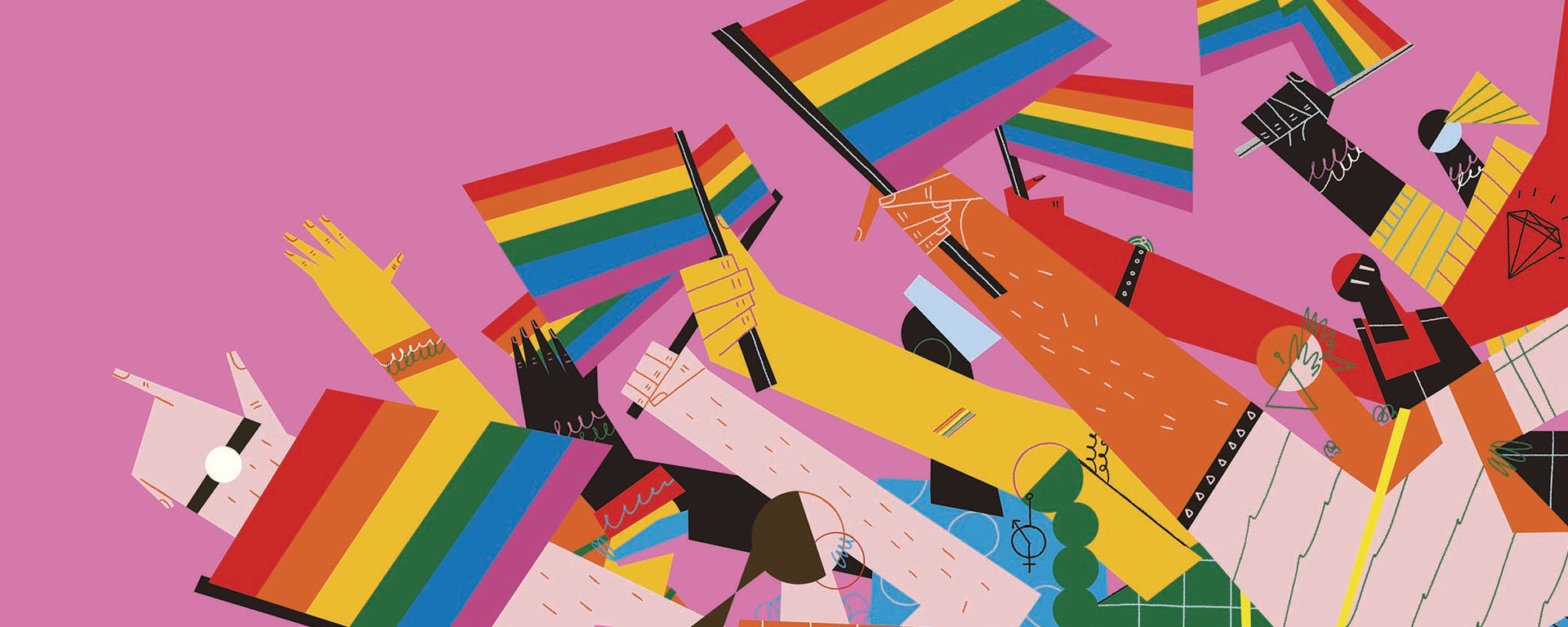
Why we all need Pride
Pride.
You may have noticed rainbow flags appearing on products from Vodka to breakfast cereal signifying that Pride month is upon us; a month to mark the Stonewall riots of 1969 and for the LGBTQ+ to stand together in defiance of homophobia and discrimination. The visibility of the Pride flag and messages of inclusion and diversity are used to send hope to those who may be struggling with or on account of their sexuality.
But do we need Pride? Whilst growing up in a small town in the South West in the 80’s/90’s my answer would have been an unequivocal yes. I had my share of bullying at school, comments shouted in the street and more than a few hairy situations in bars. As sad as it sounds, I had come to accept these things as part of my lot. Messages of Pride, inclusion, and the idea that things could and will get better would have really helped me, and all those in a similar situation, on our journey. But that was then, haven’t things changed?
In the UK homosexuality was decriminalised in 1967 and same sex marriages became legal in 2014. The Equality Act of 2010 reinforced and widened legislation stopping individuals being discriminated due to their sexuality. After years of campaigning Section 28, which prevented schools promoting homosexual relationships, was removed from law in 2003. Aren't the LGBTQ+ community creating a double standard in asking to be treated the same as everyone else but wanting parties and marches based around our differences? As triggering as the question is, it’s this people are pointing to when asking ‘when is straight pride?’
My answer is a big, fat YES we will always need Pride!
This week it was announced the town council where I live unveiled plans for a rainbow footpath, which would place the town ‘on the inclusivity map.’ A stretch of pavement will be painted with the pride and progress flags, paid for from a Town Centre Emergency Recovery Fund. At first engaging with those against the path felt like a usual evening of sparring online. At one point I offered my services, you know, as a big, fat gay of the town, to cut the ribbon. It was reassuring to see many people who weren’t LGBTQ+ yet clearly allies supporting the path and challenging others on their views. This wasn’t an ‘us and them’ argument.
24 hours later and the 'debate' was still raging. Comments like:
'Do what you like, but do it in private.'
'I don't care if you like men or you are a trans penguin, stop ramming it down our throats.'
'Fix the potholes/feed the homeless/give free meals to kids' (and other bugbears that paled into insignificance on voting day)
This wasn't funny. People were in uproar. What started for me as baiting those with differing views suddenly felt upsetting and scary, and I cried.
This was colours on a pavement. Nothing was being rammed down anyone's throats. To those that needed to see it this path is a symbol of inclusion and acceptance, saying we see you and we welcome you. If this is how people react when a path is proposed, how would they react if they were to see an LGBTQ+ couple holding hands, showing affection, kissing?
It's 2021. LGBTQ+ don’t need permission or approval from anyone in terms of what is acceptable and how much of ourselves we can share. Sometimes though, it can still feel like we do.
In answer to the question do we need Pride, there are many examples of prejudice and discrimination that show we do still need it. The current tally of countries where it is illegal to be gay stands at 71. 35 of these countries are part of the commonwealth, the UK shares our Queen with half of the countries where it is illegal to be LGBTQ+! This isn't an accident; these laws are a throwback to colonial times and a legacy of the British Empire. As we played such a big part in laying down these rules and influencing these views, don’t we have a responsibility to play a bigger part in changing them?
One in five LGBTQ+ persons have experienced a hate crime because of their sexuality in the last 12 months, which increases to two in five trans people. In 2019 two women were attacked on a London bus for refusing to kiss for the entertainment of drunken men.
This could feel very depressing so let's not forget the progress that we have made towards equality, inclusion, and acceptance. As stated above, there were many people in the debate on the rainbow path who were happy to stand up as an ally and challenge those who were putting forward anti-gay views and derogatory comments. Pride festivals are always well supported by those who recognise the importance of events and want to show they stand in solidarity with the LGBTQ+ community. As we saw with the Black Lives Matters protests in 2020, allies are important and play a vital part in changing the social landscape and we need people to continue to represent.
The Eddystone Trust has always fought discrimination for those living with HIV and members of the LGBTQ+ community. We work hard to challenge stereotypes and shatter the idea of what is ‘normal’ sex. Talking about sexual health can be unnerving anyway, without the added complexity of feeling or being judged. This leads to barriers in accessing care and support and can have a serious impact on physical and mental health.
As we move through Pride season, whether it’s online or in person, let's wave our rainbow flags with pride in support and solidarity of those who need it!
